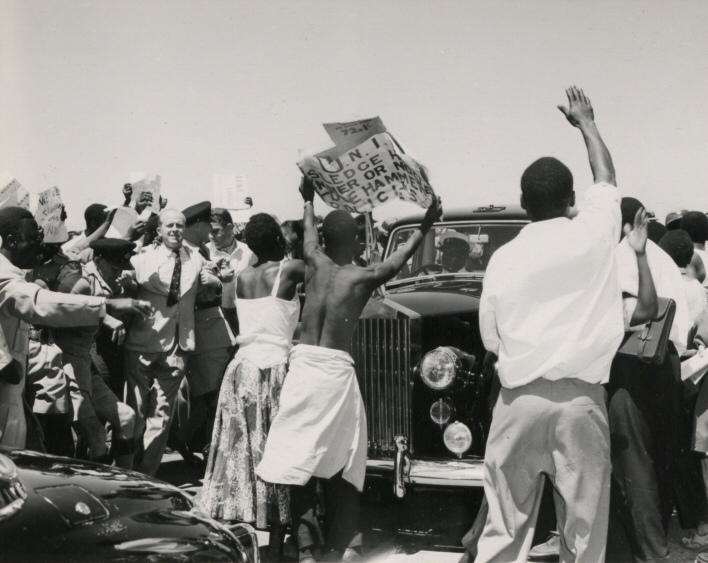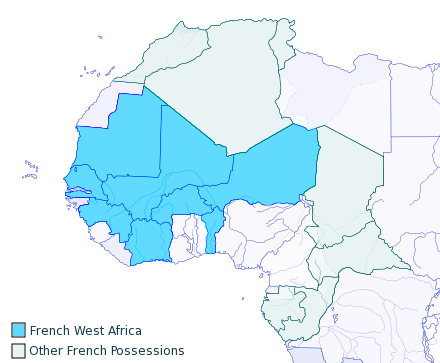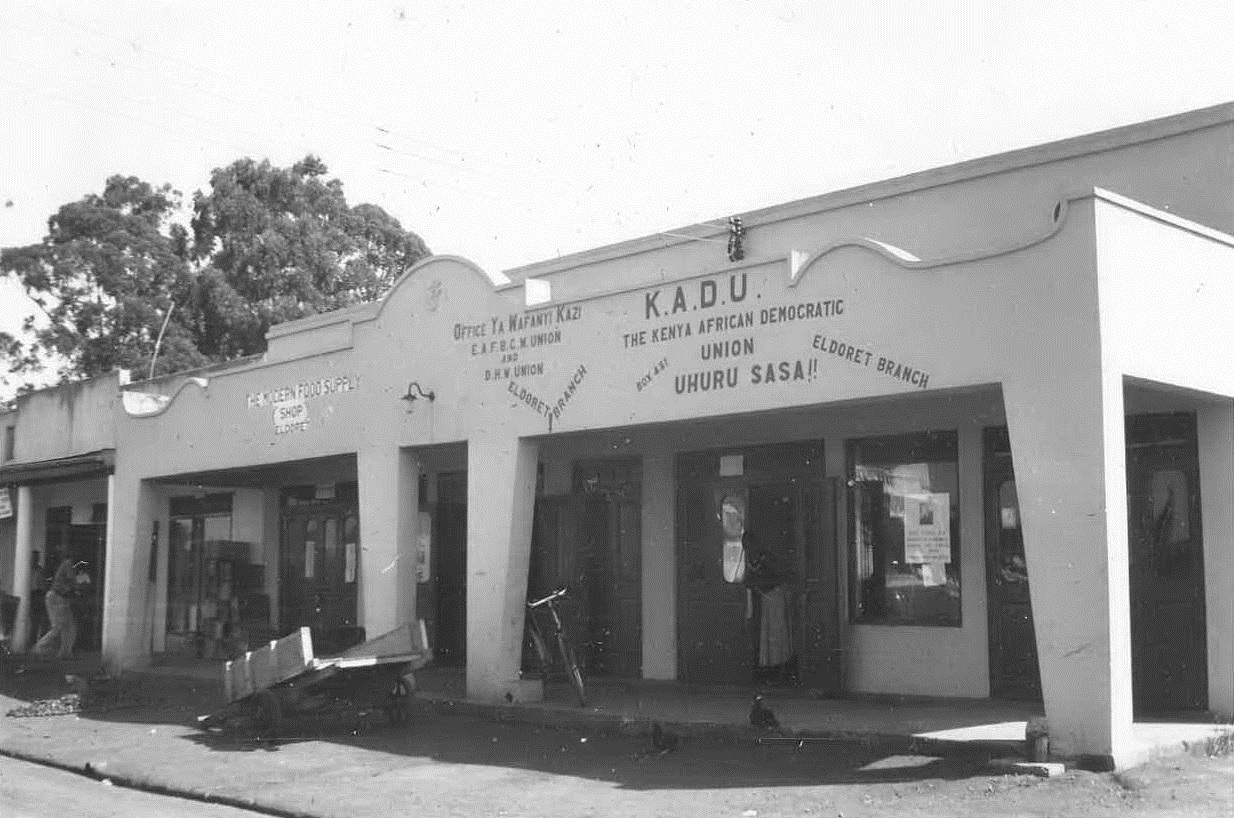|
1960 In Africa
Known as the Year of Africa, 1960 saw 17 African countries declare independence among other events. January * Mau Mau Uprising is officially over in Kenya. * 9–11 January – Aswan High Dam construction begins in Egypt. * 21 January – A mine collapses at Coalbrook, South Africa, killing 437. * 24 January – A major insurrection occurs in Algiers against French colonial policy. February * 3 February – Harold Macmillan's Wind of Change (speech), Wind of Change speech is made in Cape Town, South Africa. It signalled the end of the British Empire. * 10 February – A conference about the independence of the Belgian Congo begins in Brussels. * 29 February–1 March – The 5.7 1960 Agadir earthquake, Agadir earthquake shakes coastal Morocco with a maximum perceived intensity of Mercalli intensity scale, X (''Extreme''), destroying Agadir, and leaving 12,000 dead and another 12,000 injured. March * 21 March – The Sharpeville massacre in South Africa kills more than 69 people, ... [...More Info...] [...Related Items...] OR: [Wikipedia] [Google] [Baidu] |
Year Of Africa
1960 is referred to as the Year of Africa because of a series of events that took place during the year—mainly the independence of seventeen African nations—that highlighted the growing Pan-Africanism, Pan-African sentiments in the continent. The year brought about the culmination of African Decolonization of Africa, independence movements and the subsequent emergence of Africa as a major force in the United Nations. These rapid political developments led to speculation and hope about the future of Africa as a whole; yet at the same time, the continent was beginning to face the realities of Africa#Post-colonial Africa, post-colonial violence. This year also saw the beginning of armed opposition to South African apartheid government, with political ramifications across Africa and around the world. During the year, all colonies of French West Africa and French Equatorial Africa became independent. Origin O. H. Morris of the British Ministry of Colonies predicted in early Janua ... [...More Info...] [...Related Items...] OR: [Wikipedia] [Google] [Baidu] |
Sharpeville Massacre
The Sharpeville massacre occurred on 21 March 1960 at the police station in the township of Sharpeville in the then Transvaal Province of the then Union of South Africa (today part of Gauteng). After demonstrating against pass laws, a crowd of about 7,000 protesters went to the police station. Sources disagree as to the behaviour of the crowd: some state that the crowd was peaceful, while others state that the crowd had been hurling stones at the police and that the mood had turned "ugly". The South African Police (SAP) opened fire on the crowd when the crowd started advancing toward the fence around the police station; tear-gas had proved ineffectual. There were 249 victims in total, including 29 children, with 69 people killed and 180 injured. Some were shot in the back as they fled. The massacre was photographed by photographer Ian Berry, who initially thought the police were firing blanks. In present-day South Africa, 21 March is celebrated as a public holiday in honour of ... [...More Info...] [...Related Items...] OR: [Wikipedia] [Google] [Baidu] |
Mohamed Haji Ibrahim Egal
Mohamed Haji Ibrahim Egal ( so, Maxamed Xaaji Ibraahim Cigaal, ar, محمد الحاج ابراهيم عقال; August 15, 1928 – May 3, 2002) was a Somali politician who served as the President of Somaliland from 1993 to his death in 2002. He previously served as the first prime minister of the Somali Republic for eleven days in 1960 and again from 1967 to 1969. Life and education Egal was born in 1928, in Odweyne then a part of British Somaliland. He hails from the Issa Musse sub-division of the Habar Awal clan of Isaaq. He completed his primary, intermediate, and secondary education in former British Somaliland and then moved to the United Kingdom. Egal was married to Asha Saeed Abby, and together they had three sons and two daughters. Career On 26 June 1960, Egal was Prime minister of the newly independent State of Somaliland, which merged five days later with the former Trust Territory of Somalia to form the Somali Republic on July 1, 1960. Government work He serve ... [...More Info...] [...Related Items...] OR: [Wikipedia] [Google] [Baidu] |
Somaliland
Somaliland,; ar, صوماليلاند ', ' officially the Republic of Somaliland,, ar, جمهورية صوماليلاند, link=no ''Jumhūrīyat Ṣūmālīlānd'' is a ''de facto'' sovereign state in the Horn of Africa, still considered internationally to be part of Somalia. Somaliland lies in the Horn of Africa, on the southern coast of the Gulf of Aden. It is bordered by Djibouti to the northwest, Ethiopia to the south and west, and Somalia to the east.Encyclopædia Britannica, ''The New Encyclopædia Britannica'', (Encyclopædia Britannica: 2002), p.835 Its claimed territory has an area of , with approximately 5.7 million residents as of 2021. The capital and largest city is Hargeisa. The government of Somaliland regards itself as the successor state to British Somaliland, which, as the briefly independent State of Somaliland, united in 1960 with the Trust Territory of Somaliland (the former Italian Somaliland) to form the Somali Republic.''The New Encyclopædia Br ... [...More Info...] [...Related Items...] OR: [Wikipedia] [Google] [Baidu] |
Philibert Tsiranana
Philibert Tsiranana (18 October 1912 – 16 April 1978) was a Malagasy politician and leader, who served as the first President of Madagascar from 1959 to 1972. During the twelve years of his administration, the Republic of Madagascar experienced institutional stability that stood in contrast to the political turmoil many mainland African countries experienced in this period. This stability contributed to Tsiranana's popularity and his reputation as a remarkable statesman. Madagascar experienced moderate economic growth under his social democratic policies and came to be known as "the Happy Island." However, the electoral process was fraught with issues and his term ultimately terminated in a series of farmer and student protests that brought about the end of the First Republic and the establishment of the officially socialist Second Republic. The "benevolent schoolmaster" public image that Tsiranana cultivated went alongside a firmness of convictions and actions that so ... [...More Info...] [...Related Items...] OR: [Wikipedia] [Google] [Baidu] |
Madagascar
Madagascar (; mg, Madagasikara, ), officially the Republic of Madagascar ( mg, Repoblikan'i Madagasikara, links=no, ; french: République de Madagascar), is an island country in the Indian Ocean, approximately off the coast of East Africa across the Mozambique Channel. At Madagascar is the world's List of island countries, second-largest island country, after Indonesia. The nation is home to around 30 million inhabitants and consists of the island of Geography of Madagascar, Madagascar (the List of islands by area, fourth-largest island in the world), along with numerous smaller peripheral islands. Following the prehistoric breakup of the supercontinent Gondwana, Madagascar split from the Indian subcontinent around 90 million years ago, allowing native plants and animals to evolve in relative isolation. Consequently, Madagascar is a biodiversity hotspot; over 90% of wildlife of Madagascar, its wildlife is endemic. Human settlement of Madagascar occurred during or befo ... [...More Info...] [...Related Items...] OR: [Wikipedia] [Google] [Baidu] |
Dakar
Dakar ( ; ; wo, Ndakaaru) (from daqaar ''tamarind''), is the capital and largest city of Senegal. The city of Dakar proper has a population of 1,030,594, whereas the population of the Dakar metropolitan area is estimated at 3.94 million in 2021. The area around Dakar was settled in the 15th century. The Portuguese established a presence on the island of Gorée off the coast of Cap-Vert and used it as a base for the Atlantic slave trade. France took over the island in 1677. Following the abolition of the slave trade and French annexation of the mainland area in the 19th century, Dakar grew into a major regional port and a major city of the French colonial empire. In 1902, Dakar replaced Saint-Louis as the capital of French West Africa. From 1959 to 1960, Dakar was the capital of the short-lived Mali Federation. In 1960, it became the capital of the independent Republic of Senegal. History The Cap-Vert peninsula was settled no later than the 15th century, by the Lebu peop ... [...More Info...] [...Related Items...] OR: [Wikipedia] [Google] [Baidu] |
Modibo Keita , Malian judge magistrate
{{given name ...
Modibo or more correctlyMoodibbo in Fula or Fulfulde Orthography is a given name in some Fulɓe or Fulani regions, while in some regions it's used as a form of respect which means a learned scholar. Others are named moodibbo after one's parents or grand parents. Notable people with the given name include: *Modibo Keïta (1915–1977), Malian politician *Modibo Keita (born 1942), Malian politician *Modibo Maïga (born 1987), Malian footballer *Modibo Nama Traoré, Malian journalist and military personnel *Modibo Sidibé (born 1952), Malian politician *Modibo Tounty Guindo Modibo Tounty Guindo is a magistrate who serves the Malian Ministry of Justice and sits on the African Court on Human and Peoples' Rights The African Court on Human and Peoples' Rights, also known simply as the African Court, is an internation ... [...More Info...] [...Related Items...] OR: [Wikipedia] [Google] [Baidu] |
Mali Federation
The Mali Federation ( ar, اتحاد مالي) was a federation in West Africa linking the French colonies of Senegal and the French Sudan, Sudanese Republic (or French Sudan) for two months in 1960. It was founded on 4 April 1959 as a territory with self-rule within the French Community and became independent after negotiations with France on 20 June 1960. Two months later, on 19 August 1960, the Sudanese Republic leaders in the Mali Federation mobilized the army, and Senegal leaders in the federation retaliated by mobilizing the gendarmerie (national police); this resulted in a tense stand-off, and led to the withdrawal from the federation by Senegal the next day. The Sudanese Republic officials resisted this dissolution, cut off diplomatic relations with Senegal, and defiantly changed the name of their country to Mali. For the brief existence of the Mali Federation, the premier was Modibo Keïta, who would later become the first President of Mali, and its government was based ... [...More Info...] [...Related Items...] OR: [Wikipedia] [Google] [Baidu] |
Kenya African Democratic Union
The Kenya African Democratic Union (KADU) was a political party in Kenya. It was founded in 1960 when several leading politicians refused to join Jomo Kenyatta's Kenya African National Union (KANU). It was led by Ronald Ngala who was joined by Moi's Kalenjin Political Alliance, the Masai United Front, the Kenya African Peoples Party, the Coast African Political Union, Masinde Muliro's Baluhya Political Union and the Somali National Front. The separate tribal organisations were to retain their identity and so, from the very start, KADU based its political approach on tribalism. KADU's aim was to defend the interests of the so-called KAMATUSA (an acronym for Kalenjin, Maasai, Turkana and Samburu ethnic groups) as well as the British settlers, against the imagined future dominance of the larger Luo and Kikuyu that comprised the majority of KANU's membership, when it became inevitable that Kenya will achieve its independence. The KADU objective was to work towards a multiracial s ... [...More Info...] [...Related Items...] OR: [Wikipedia] [Google] [Baidu] |
Sylvanus Olympio
Sylvanus Épiphanio Olympio (; 6 September 1902 – 13 January 1963) was a Togolese politician who served as prime minister, and then president, of Togo from 1958 until his assassination in 1963. He came from the important Olympio family, which included his uncle Octaviano Olympio, one of the richest people in Togo in the early 1900s. After graduating from the London School of Economics, he worked for Unilever and became the general manager of the African operations of that company. After World War II, Olympio became prominent in efforts for independence of Togo and his party won the 1958 election, making him the prime minister of the country. His power was further cemented when Togo achieved independence and he won the 1961 election, making him the first president of Togo. He was assassinated during the 1963 Togolese coup d'état. Early life and business career Sylvanus Olympio was born on 6 September 1902 in Kpandu in the German protectorate of Togoland, present day Volt ... [...More Info...] [...Related Items...] OR: [Wikipedia] [Google] [Baidu] |
Togo
Togo (), officially the Togolese Republic (french: République togolaise), is a country in West Africa. It is bordered by Ghana to the west, Benin to the east and Burkina Faso to the north. It extends south to the Gulf of Guinea, where its capital, Lomé, is located. It covers about with a population of approximately 8 million, and has a width of less than between Ghana and its eastern neighbor Benin. From the 11th to the 16th century, tribes entered the region from various directions. From the 16th century to the 18th century, the coastal region was a trading center for Europeans to purchase slaves, earning Togo and the surrounding region the name "The Slave Coast". In 1884, Germany declared a region including a protectorate called Togoland. After World War I, rule over Togo was transferred to France. Togo gained its independence from France in 1960. In 1967, Gnassingbé Eyadéma led a successful military coup d'état, after which he became president of an anti-communist, ... [...More Info...] [...Related Items...] OR: [Wikipedia] [Google] [Baidu] |







